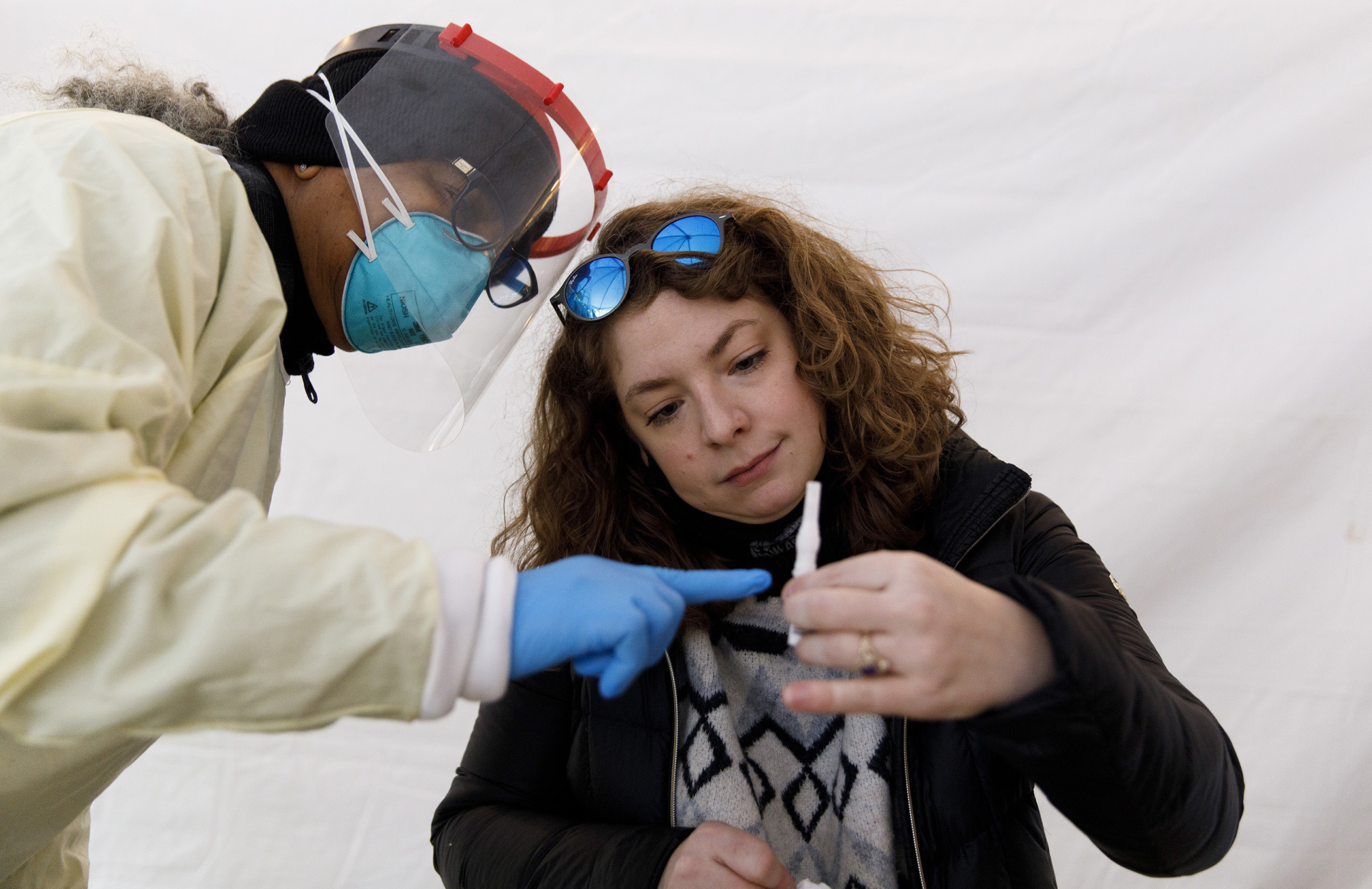When the COVID-19 pandemic first hit the U.S., the most common way to test for the virus was using nasopharyngeal (NP) swabs—which pass through the nostril to the very back of the nasal cavity, where they pick up mucosal secretions.
But thanks to a team of researchers from UGA’s Veterinary Diagnostic Laboratories, getting tested for the coronavirus is much less obtrusive. As of Jan. 4, UGA began offering a saliva-based COVID-19 test, developed by the College of Veterinary Medicine’s Diagnostic Laboratories, and is transitioning to primarily using the saliva test as the semester continues.
The test has been proven to be just as accurate as the nasopharyngeal swab-based test. It’s also able to detect the COVID-19 variants that have recently been all over the news. But it’s infinitely more comfortable for the people being tested, requiring a sample of only 1 milliliter of saliva.
“There’s been a lot of effort on this throughout the country to get saliva tests up and running,” said Jesse Hostetter, Barry G. Harmon Professor of Pathology in the College of Veterinary Medicine and executive director of the Tifton and Athens Veterinary Diagnostic Laboratories. “So we had a lot of really good information to begin with when we started adapting our test over to use saliva samples.”
The test provides an alternative for people on blood-thinning medications or a history of nosebleeds who can’t be given an NP test. (For those who are not medically able to give saliva samples, NP tests will continue to be an option at the UGA testing sites.) It also eliminates the need for the swabs and some other medical equipment, which were hard to come by at the start of the pandemic due to supply chain issues.
Saliva samples are stable, meaning they don’t need to be refrigerated once they’re collected, and the tests don’t have to be administered by health care professionals. Although the Legion Field testing site continues to use nursing staff, the saliva test is mostly self-administered, with health care professionals mainly providing guidance as needed.
At Legion Field, the new test does not require fasting ahead of testing. Hostetter encourages people to hydrate prior to getting COVID tested so they have enough saliva to easily reach the 1 milliliter requirement.
‘A leg up’ on testing
The veterinary diagnostic laboratories run complex tests regularly to detect the presence of various viral and fungal infections in animals, so technicians were already familiar with the ins and outs of the molecular tests and techniques required for detecting COVID-19.
“That gave us a leg up, so we were able to start testing very quickly,” said Susan Sanchez, a professor of infectious diseases in the College of Veterinary Medicine, head of microbiology and molecular biology in the lab and director of One Health at UGA.
Another integral part of the team is the IT professionals behind VetView, the laboratory management system that handles everything from registration to tracking samples through the lab.
“Without the IT and Vet View support, we couldn’t do thousands of samples like we are doing as quickly as we are,” Sanchez said. “It would have taken days and weeks.”
It also would’ve taken significantly more staffing in the lab. Sanchez leads a team of six, and the microbiology staff still have veterinary testing duties to fulfill as well. The collaboration across disciplines at the university was critical—from the testing staff who Hostetter describes as “pulling off miracles,” to the lab, to the IT infrastructure making testing flow seamlessly.
“Continued testing is critical,” Sanchez said. “That’s what’s going to help us determine prevalence of the virus, find different strains that may be circulating and keep others safe.”


